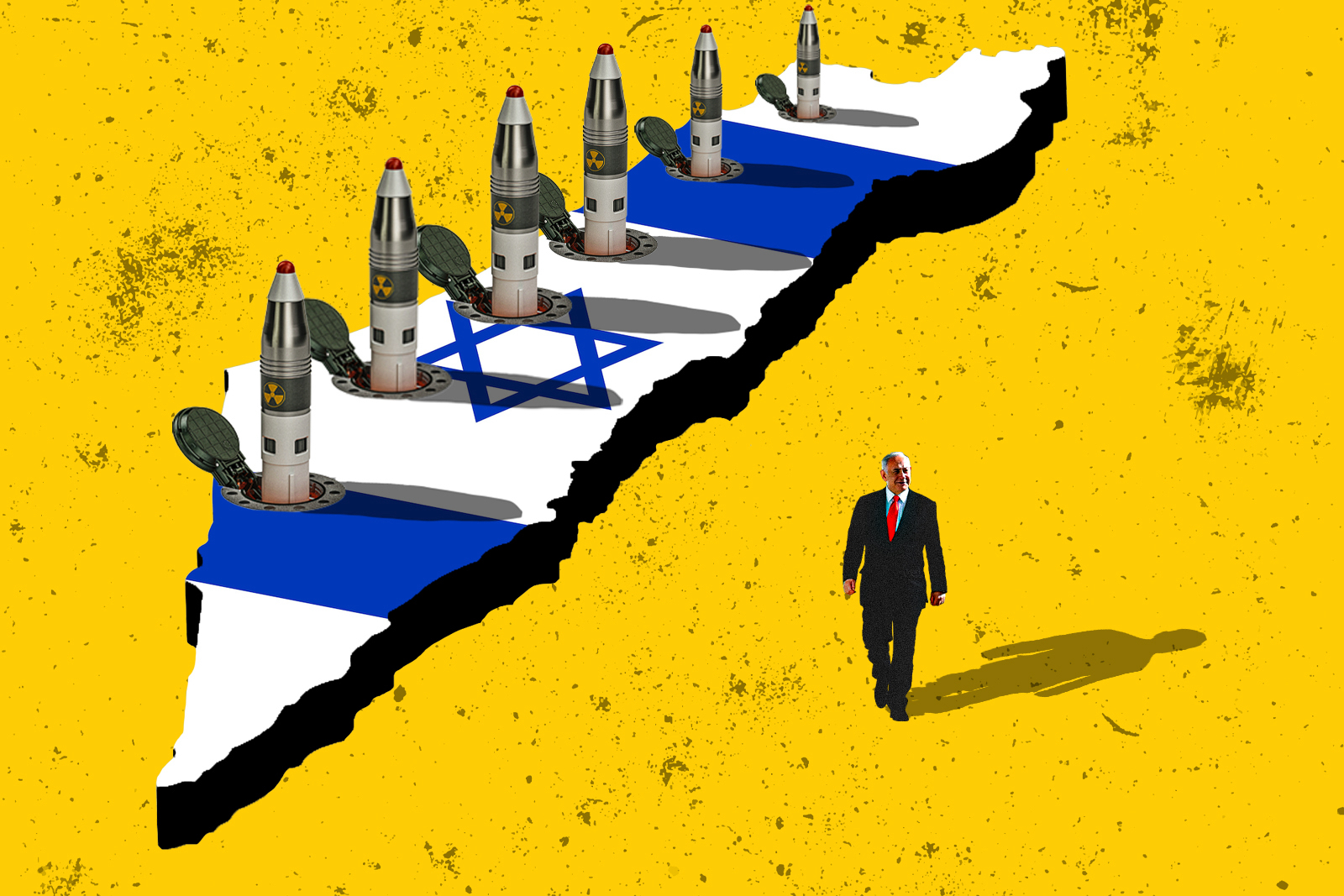
Israel is Pinning its Security on its Ghost Nukes
The U.S. nuclear umbrella is vast and includes South Korea, Japan, and much of Europe. American security guarantees allow each country to sleep well at night tucked under the U.S. nuclear security blanket.
This is a mutually beneficial security arrangement. On the one hand, the U.S. promises to protect certain countries from offensive nuclear attack while allowing the U.S. to maintain hegemony by deterring smaller countries from building or developing their own nuclear weapons. However, while vast, the umbrella doesn’t cover Israel.
Israel’s nuclear ambiguity of never officially confirming whether it has nuclear weapons is the country’s strongest bulwark. However, the stability and questionable longevity of this policy has put the Middle East in a precarious position regarding nuclear proliferation.
Israel’s ghost nukes are the worst-kept secret in foreign affairs and the reason for slowed proliferation efforts in the Arab League. So, to fully understand Israel’s nuclear standing, we must first delve into the historical developments of nuclear weapons and non-proliferation efforts globally.
From the start, one of the main issues with global nuclear policy has been that some countries are allowed nuclear weapons, and others are not. Shortly after the development of nuclear weapons, the international community quickly learned that they couldn’t put the genie back into the bottle. Thus, countries have worked towards developing non-proliferation treaties and frameworks. The most well-known is the 1968 Nuclear Non-Proliferation Treaty.
Whether or not the NPT or any other non-proliferation treaty does anything is up for considerable debate today, and this is because there is the given loophole that has allowed countries to build up considerable nuclear weapons stockpiles. Significant exceptions are made for the five permanent members of the UN Security Council since they developed their nuclear weapons programs before any treaties were ever signed. In essence, they were grandfathered in. It’s akin to trying to take away a child’s Christmas toy after he has unwrapped it.
Taking a closer look at the members of the UN Security Council, France was significantly behind other countries in developing its nuclear capabilities back in the 1950s which became apparent during the Suez Crisis, which pushed France to expand its nuclear arsenal to maintain parity. This would help explain why, in 1957, the French Atomic Energy Commission began working with Israel to develop their first nuclear weapons.
Israeli scientists were given unlimited access to tests and chemical data during this process. Shortly after, Israel began developing their nuclear research facilities, which are only known to do nuclear energy research. Moreover, the mysticism behind these facilities is precisely what makes Israel’s nuclear opacity so concerning to its neighbors.
Israel is not a member of the NPT, which allows Israel to develop nuclear weapons and conduct nuclear weapons research without violating any international agreements. The Hebrew name for Israel’s nuclear program is Ammi Mut, which means “Deliberate Ambiguity.” And this policy of nuclear opacity simply means that Israel will neither confirm nor deny that it has nuclear weapons.
Since Israel’s creation in 1948, maintaining a formidable military is seen as essential as having access to clean water. In 1960, with France’s support, David Ben-Gurion, Israel’s first prime minister, became obsessed with developing a viable nuclear weapons program. This is when the West, namely the United States, suspected that Israel was in possession of its first nuclear weapon. Washington first learned of Israel’s covert nuclear program “at Dimona from an American corporate official talking to U.S. diplomats in Tel Aviv during mid-summer 1960,” according to a declassified document. Despite common knowledge that Israel has anywhere from 80 to 400 warheads, Israel is tightlipped about the details.
This secrecy has kept Israel safe from any large-scale attacks for decades. Former Prime Minister Yair Lapid has said: “the operational arena in the invisible dome above [Israel] is built on defensive capabilities, and what the foreign media tends to call other capabilities.’ These ‘other capabilities’; keep [Israel] alive and will keep us alive so long as [Israel] and [its] children are here.” The opacity behind the country’s nuclear program can be chalked up to security concerns Israel has always had given its location.
Former Prime Minister Shimon Peres changed the landscape of regional security with his conversation with U.S. President John F. Kennedy. “I can tell you most clearly that he will not introduce nuclear weapons to the region and will certainly not be the first” which gave birth to Ammi Mut. In his autobiography, Peres wrote: “[Israel] learned there is tremendous power in ambiguity…doubt [has become] a powerful deterrent to those who desired a second Holocaust.”
Israel has another nuclear strategy, which in Hebrew is called B’eret Shimson or “The Samson Option.” Based on the story of Samson in the Torah, according to journalist Seymour M. Hersh, the Samson Option describes Israel’s deterrent strategy of using massive nuclear retaliation as a “final resort” if Israel felt it had no other option.
Israel’s nuclear program has been coined the world’s “worst kept secret.” Israel can no longer have a foot in both doors of deterrence and nuclear opacity. So, what would the region look like if Israel were, for the first time, to publicly acknowledge what everyone else assumes to be true?
Advocates of maintaining opacity argue that dropping Israel’s opaque policy could lead to further nuclear proliferation in the Middle East. Furthermore, if Israel were to show its nuclear cards, it could jumpstart an arms race with Saudi Arabia, Iran, and others. What impact would a different method of diplomacy have on Israel’s security? And most importantly, would there be an Israel without its ghost nukes?
Israel would not be the first non-NPT signatory to fess up to owning nuclear weapons. Only fifteen days separated the two nuclear tests conducted by India and Pakistan in 1998, indicating that both nations had been hiding their nuclear weapons for quite a while. Initially, they faced some consequences such as sanctions but those were eventually lifted. Israel wouldn’t face any long-term consequences. The U.S. would still sell them arms, economic integration would continue, and the status quo would remain in place.
Regardless of whether Israel comes clean, nuclear opacity and ambiguity has worked in its favor so there isn’t likely to be a shift any time soon.
